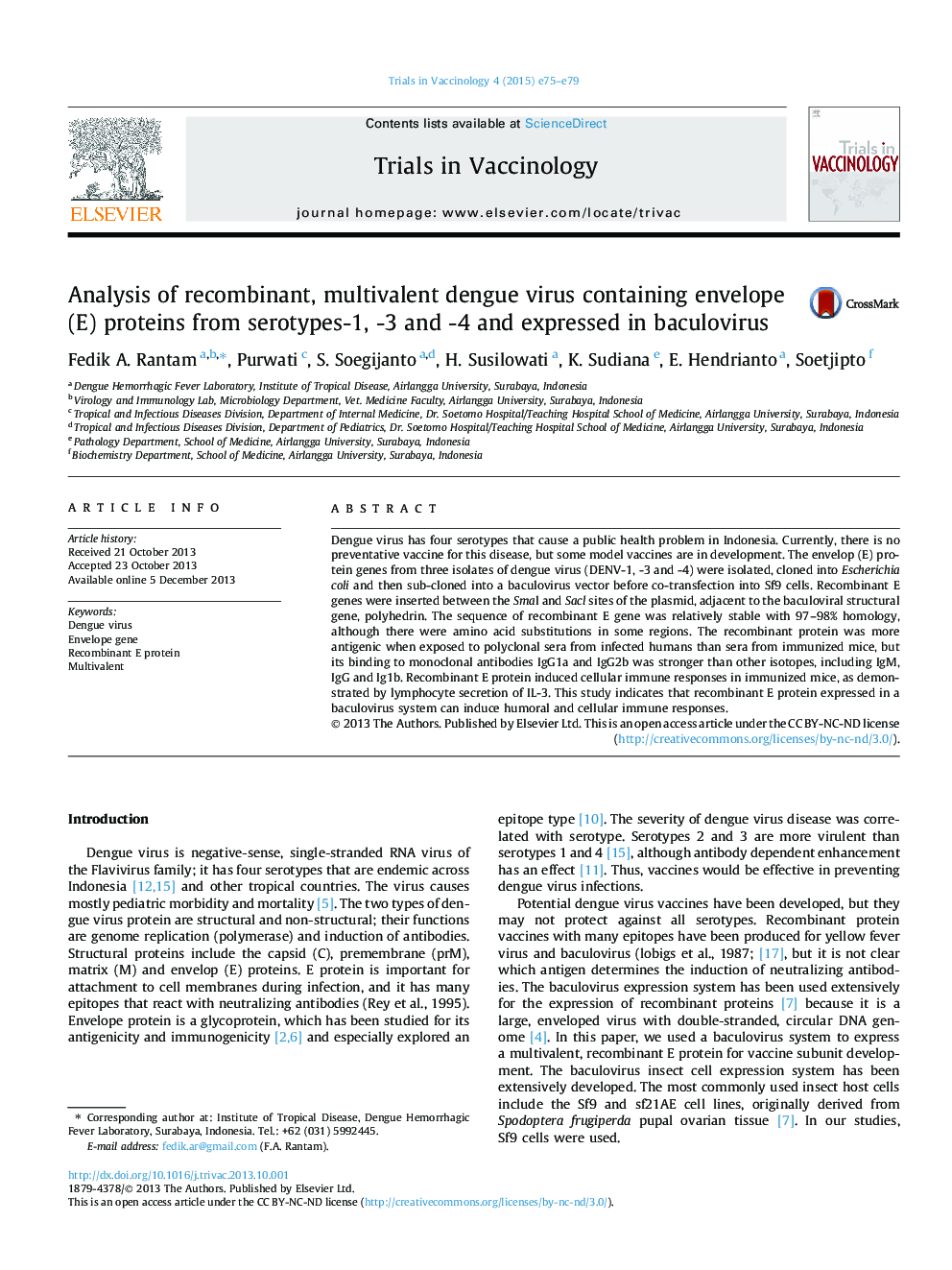| Article ID | Journal | Published Year | Pages | File Type |
|---|---|---|---|---|
| 2474379 | Trials in Vaccinology | 2015 | 5 Pages |
Dengue virus has four serotypes that cause a public health problem in Indonesia. Currently, there is no preventative vaccine for this disease, but some model vaccines are in development. The envelop (E) protein genes from three isolates of dengue virus (DENV-1, -3 and -4) were isolated, cloned into Escherichia coli and then sub-cloned into a baculovirus vector before co-transfection into Sf9 cells. Recombinant E genes were inserted between the Smal and Sacl sites of the plasmid, adjacent to the baculoviral structural gene, polyhedrin. The sequence of recombinant E gene was relatively stable with 97–98% homology, although there were amino acid substitutions in some regions. The recombinant protein was more antigenic when exposed to polyclonal sera from infected humans than sera from immunized mice, but its binding to monoclonal antibodies IgG1a and IgG2b was stronger than other isotopes, including IgM, IgG and Ig1b. Recombinant E protein induced cellular immune responses in immunized mice, as demonstrated by lymphocyte secretion of IL-3. This study indicates that recombinant E protein expressed in a baculovirus system can induce humoral and cellular immune responses.
